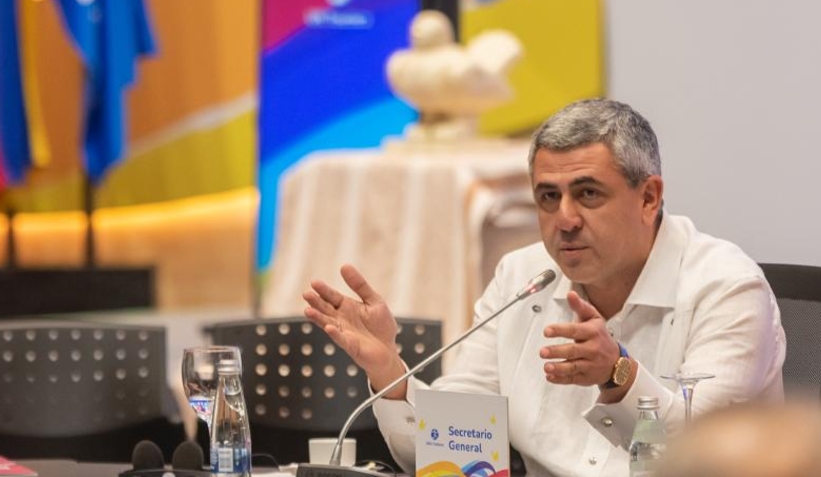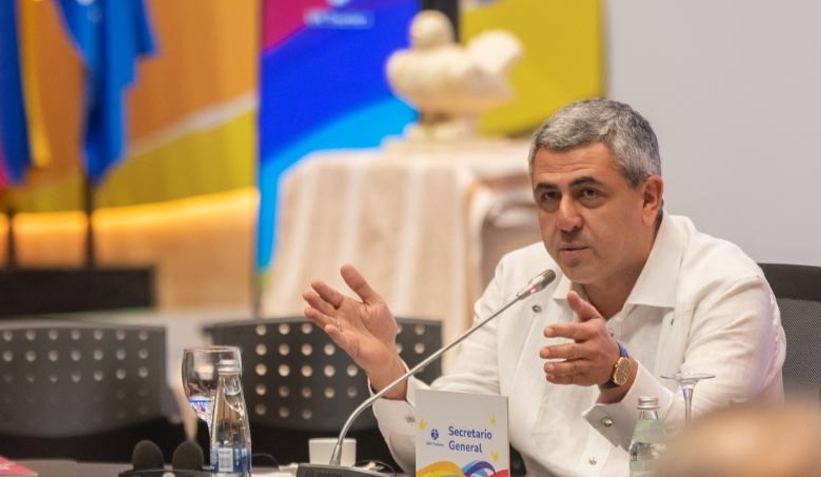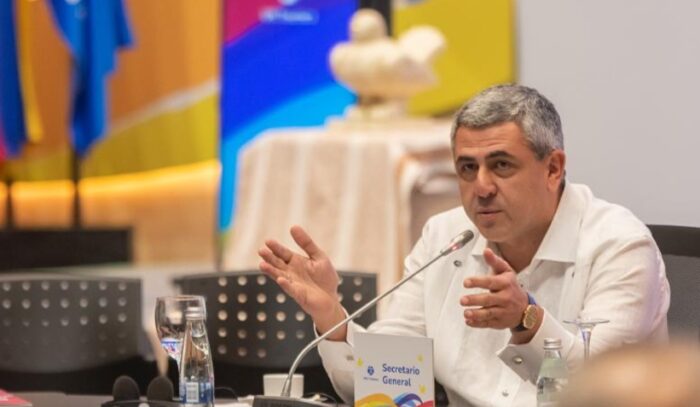UN Tourism Executive Council Looks to Innovation and Investment-Driven Future


 Cartagena de Indias, Colombia, November 24, 204 / TRAVELINDEX / UN Tourism’s Executive Council has met again to jointly advance the transformation of the sector. With the latest UN Tourism Data showing that the sector is on track to reach 96% recovery of pre-pandemic numbers by the end of the year, the 122nd Session of the Executive Council looked to the future, with investments and innovation high on the agenda. The Session welcomed representatives of 47 countries, including 21 Ministers and Vice-Ministers of Tourism, alongside key strategic partners from the private sector, civil society and international finance.
Cartagena de Indias, Colombia, November 24, 204 / TRAVELINDEX / UN Tourism’s Executive Council has met again to jointly advance the transformation of the sector. With the latest UN Tourism Data showing that the sector is on track to reach 96% recovery of pre-pandemic numbers by the end of the year, the 122nd Session of the Executive Council looked to the future, with investments and innovation high on the agenda. The Session welcomed representatives of 47 countries, including 21 Ministers and Vice-Ministers of Tourism, alongside key strategic partners from the private sector, civil society and international finance.
Opening the session, UN Tourism Secretary-General Zurab Pololikashvili welcomed the example set by Colombia in “betting on tourism” to provide a better future for the country, including for previously-marginalized groups. He said: “Colombia has chosen to invest in tourism, not in weapons or war, and as the only country to have hosted every major UN Tourism event, including two General Assemblies, it is a testament to the power of tourism as a force for change.”
The Secretary-General then presented his report to Members. The report sets out the progress made in advancing the Organization’s work since the Council last met, again with a special emphasis on the shared priorities of investments into tourism, education and accelerating innovation across the sector.
Colombia has chosen to invest in tourism, not in weapons or war, and as the only country to have hosted every major UN Tourism event, including two General Assemblies, it is a testament to the power of tourism as a force for change
Advancing shared goals
In Cartagena, the Members of the Executive Council advanced plans to build a more inclusive, resilient and forward-looking sector, with a focus on:
- Innovation: UN Tourism is the global leader in innovation in the sector. Executive Council Members were given an overview of key achievements in this area, including the continued success of its Challenges and Competitions, designed to identify and support the best new ideas and talent. In Cartagena, the winners of two new competitions, the Green Projects Challenge and the Community Tourism Challenge, were formally announced.
- Investment: In Cartagena, UN Tourism will present its Tourism Doing Business Guidelines: Investing in Colombia. The publication series continues to grow, with a further 28 editions, each focusing on investment opportunities in a specific destination, now planned. Also in Cartagena, UN Tourism will host a landmark Global Forum on Investment and Innovation to conclude the Executive Council meeting.
- Education: Executive Council Members were brought up-to-date with UN Tourism’s leading work in promoting tourism education and training at every level. Key advances include the continued rolling out of the Education Toolkit, designed to help Member States introduce tourism as a subject in high schools, as well as the ongoing success of the UN Tourism Online Academy and the growing global network of International Academies in Association With UN Tourism.
Strengthening strategic partnerships
Within the framework of the 122nd Executive Council, UN Tourism further advanced its work building strong partnerships around shared goals. A special networking session of the UN Tourism Affiliate Members focused on Tourism of the Future: Moving Towards the Sustainable Development Goals, bringing together destinations, private sector leaders and civil society stakeholders.
Best Tourism Villages 2024 announced
During the Executive Council, UN Tourism announced the latest additions to its growing Best Tourism Villages network. For the 2024 edition, a further 55 rural destinations were awarded the title, recognizing their leading work in harnessing the power of tourism to create local opportunities as well as preserving and celebrating natural and cultural heritage.